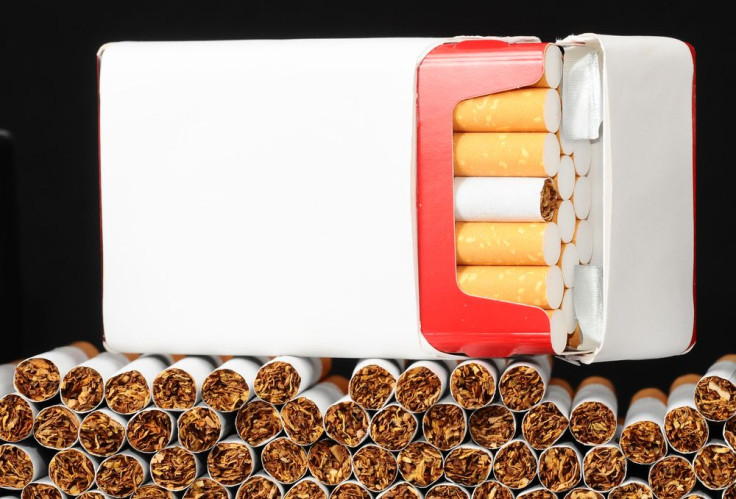UK To Mandate 'Plain Packaging' For Cigarettes, With More Room For Graphic Warnings: Should The US Do The Same?

Britain is set to force cigarette manufacturers to remove all branding from their products, leaving room only for graphic health warnings, a government minister told reporters on Thursday.
The ban would make the UK the first nation in Europe to enforce a plain packaging policy similar to that of Australia, where legislators in 2012 enacted a groundbreaking law requiring plain olive green packaging for tobacco products. Speaking to Reuters, junior minister, Jane Ellison, said that draft regulations and the results of a short consultation would be published later this month.
Although hard data regarding the ban’s impact on Australian smoking rates remain scarce, anti-smoking campaigners and physicians believe that the new policy will eventually prove effective in reining in the habit that kills millions of people each year. "It is in my view highly likely that standardized packaging would serve to reduce the rate of children taking up smoking," said Dr. Cyril Chantler, a pediatrician commissioned by the UK government to review research relevant to the law.
"The evidence base is modest and it has limitations, but it points in a single direction, and I am not aware of any evidence pointing the other way," he explained.
Changing the Tobacco Industry
Unsurprisingly, cigarette manufacturers and lobby groups are not crazy about the idea. Last month, British American Tobacco claimed that the Australian law had done little more than drive up the rate of illegal tobacco smuggling. However, the Australian Customs and Border Protection Service promptly responded by saying that, while the agency had indeed upped its capture of illegal tobacco, only one seizure involved the new plain packaging cigarettes.
The Freedom Organization for the Right to Enjoy Smoking Tobacco (FOREST), a political pressure group funded by tobacco industry giants, responded to the proposed law by launching the campaign “Hands Off Our Packs!,” which charges that the term plain packaging is “deliberately misleading.”
“‘Plain' packaging has nothing to do with health and everything to do with the 'denormalisation' of a legal product and the ten million consumers who continue to smoke tobacco in the face of fierce opposition from extreme anti-smoking activists and politicians who have nothing better to do than tell people how to live their lives,” they write.
“Denormalisation,” which is not a real word, appears to refer to actions that problematize the normativity of cigarette smoking. To explain why this is a problem, FOREST calls on an artist named David Hockney, who describes the prevalence of no smoking signs as the “uglification of England.” Unlike “denormalisation,” “uglification” is an actual word — however, it is not clear how it will interfere with the right to enjoy smoking tobacco.
Tobacco Policy in 2014 and Beyond
Though still lagging behind on graphic warning labels, U.S. states have implemented numerous progressive tobacco policies in the past few years. One example is San Rafael, Calif., where lawmakers have implemented what some call the nation’s most stringent tobacco ban. The law, which makes it illegal to smoke at home if you share a wall with another residence, has been tied to a significant impact on smoking rates by at least one study.
Official estimates indicate that smoking and secondhand smoke is currently the direct cause of over 480,000 deaths in the U.S. About half of all smokers now die from emphysema, cancer, or other medical complications arising from the habit. According to the Centers for Disease Control and Prevention, tobacco use costs the nation about $298 billion each year.
Published by Medicaldaily.com



























